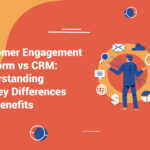The agency that I cofounded, e-Nor, became a Google Analytics Certified Partner in the mid-2000s. Over the course of nearly a decade, we worked with hundreds of organizations in a wide spectrum of verticals and sizes, from small local businesses to the Fortune 500.
I sold e-Nor to Dentsu in 2019. At the same time, the e-Nor division in MENA rebranded independently as e-CENS. As e-CENS chairman of the board, I still have the chance to speak with business owners and operators in the US, Europe, and MENA who want to get the most out of their analytics practices.
In my most recent venture, Start Up With Feras, I speak with founders and would-be entrepreneurs nearly daily.
Parallels between startups and internal analytics teams
Reflecting on my experiences at e-Nor, e-CENS, and Start Up With Feras, I have more clearly understood four parallels between an entrepreneur building and growing a healthy startup and an analytics leader building and growing a robust data and digital transformation practice within an organization.
People-focused as much as tech-focused
Over nearly two decades in digital, the common thread I have seen is that organizations that invest in both tech and people realize the most gains.
There are many responsibilities within analytics and digital transformation: collecting data, connecting systems, storing data, analyzing data, presenting findings, acting on insights, and convincing the executives to fund your department. Tech on its own can never fill all these needs. It takes skilled people at every turn.
So, who should a company hire for its analytics team? What’s their skill set?
You do need at least one superhero or a superwoman on your analytics team. 🙂 This person will have to wear many hats, just like a startup founder.
So, when you’re building your team, the initial hire should be a generalist with a solid foundation in the analytics space, ideally an “intrapreneur” who can seek the help of consultants (or potentially colleagues in other parts of the business) for the areas they lack in, such as advanced technical implementation or data visualization.
Committed to clients
I still remember when someone hired us, and they got the pristine data they’d been long looking for, or the rich dashboard they’d dreamt of having, or something more strategic, like helping a company grow their analytics practice: all of this brought me joy and fulfillment.
Our analytics agency’s most successful client teams were committed to their own internal “clients”, e.g., the stakeholders within the business. Just as we worked hard to empower our client teams with the correct data, tools, processes, and skills, the successful client teams worked hard to help propagate reporting and insight throughout the organization, drive continuous improvement, and improve the brand experience of their own customers.
Of course, agencies have to make money, and departments have to stay funded, but in either case, the monetary benefit typically follows the deep satisfaction of helping others succeed.
Visionary and strategic
Just like any startup would need a strategic vision and a tactical business plan addressing all aspects of the business, a strong analytics team must clearly understand the business goals that they’re supporting and draw the roadmap to guide the journey beyond the current status quo.
Dedicated to ongoing learning, evaluation, and improvement
In my years at e-Nor, I saw that the early stages of client engagements tended to have a similar tone: clients had become very motivated about an analytics project and enthusiastically hired a consultant.
Once the project was done and the short-term objective was met, momentum sometimes died down. The client didn’t make any real effort to improve further internal processes (for data collection, governance, analysis, etc.) or reassess the analytics function relative to new requirements within the organization.
Just as I advise founders to periodically evaluate their businesses and decide whether they need to pivot, quit, or double down, I urge analytics teams to regularly review their processes, tech stack, and staffing to ensure that they’re most effectively serving the business’s needs.
Successful internal analytics teams
Now that I’m no longer involved day-to-day in running the agency business – Bashar is doing
an outstanding job leading our amazing e-CENS team – these parallels between successful startups and successful internal analytics teams have become ever more striking.
When the two are paired as an agile analytics agency empowering a committed, entrepreneurial, client-focused internal, the synergy and the resulting gains can be magic.








